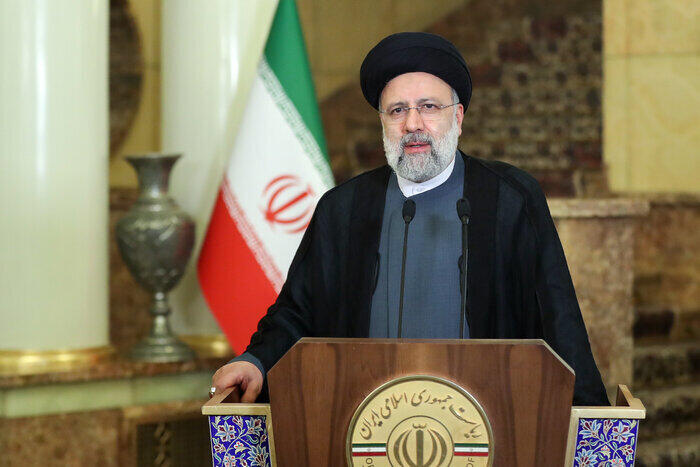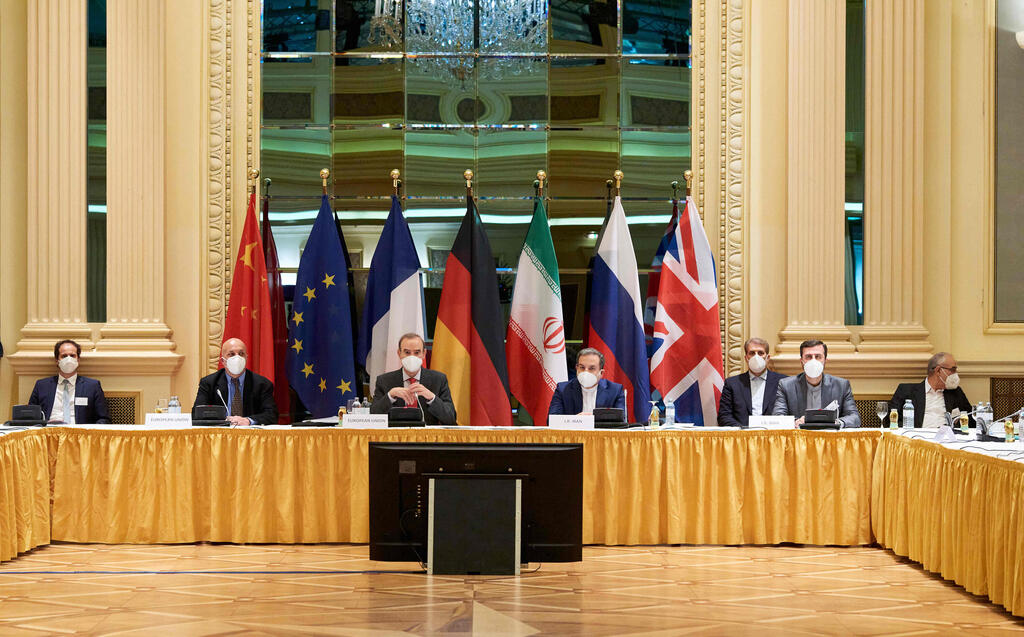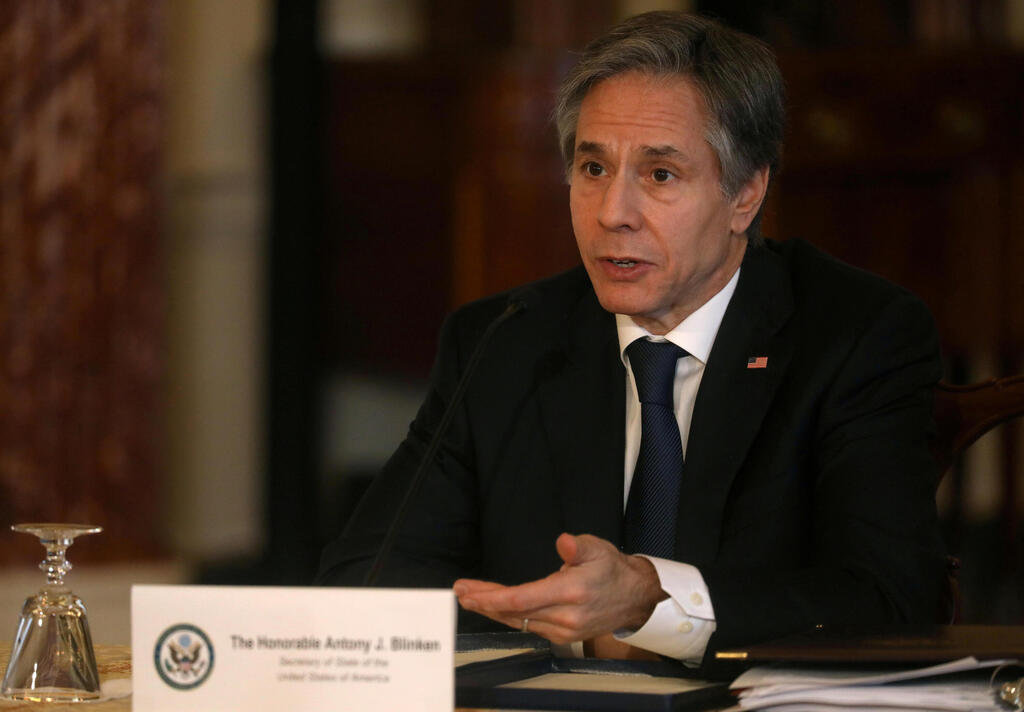Iranian President Ebrahim Raisi said Tuesday an agreement with the United States over its nuclear deal with world powers is possible if sanctions on Iran are lifted, state TV reported.
Raisi's comments came a day after Iranian Foreign Minister Hossein Amirabdollahian signaled a willingness by Iran to engage directly with the U.S. in discussions over the deal if necessary to reach a satisfactory agreement.
3 View gallery


Iranian President Ebrahim Raisi addresses the 76th Session of the UN General Assembly from Tehran, September 22, 2021
(Photo: AFP)
"If the parties are ready to lift the oppressive sanctions, it is quite possible any agreement can be reached," Raisi said in a live broadcast.
Iran and world powers have begun another round of nuclear talks in Vienna, Austria aimed at salvaging the tattered 2015 nuclear deal. The meetings include all the deal's remaining signatories — Iran, Britain, France, Germany, Russia and China.
The U.S. has participated only indirectly in the ongoing talks because it withdrew from the accord in 2018 under then-president Donald Trump. Trump later re-imposed crushing sanctions on Iran and the Islamic Republic responded by increasing the purity of uranium it enriches and its stockpiles, in breach of the accord.
President Joe Biden has signaled that he wants to rejoin the deal and the U.S. has said it is prepared to hold direct talks with Iran on its nuclear program, a position it reiterated Monday.
3 View gallery


Diplomats of the EU, China, Russia and Iran at the start of talks on a U.S. return to the 2015 nuclear deal, at the Grand Hotel in Vienna
(Photo: AFP)
"We have consistently held the position that it would be much more productive to engage with Iran directly on both (nuclear deal) negotiations and on other issues," State Department spokesman Ned Price told reporters.
In 2018, Iran's Supreme Leader Ayatollah Ali Khamenei, who has the final say on all state matters, banned any negotiations with the U.S., saying talks with America would only harm Iran.
Earlier this month, however, Khamenei indirectly gave the green light to the Iranian negotiation team to talk with the U.S. and said negotiating and interacting with the enemy does not mean surrender.
U.S. Secretary of State Antony Blinken said last week that talks with Iran over its nuclear program are at a "decisive moment," and warned that Washington and its allies may change tactics if a deal isn't reached in the coming weeks.
3 View gallery


U.S. Secretary of State Antony Blinken holds a virtual meeting with UN General Assembly President Volkan Bozkir via videoconference from the State Department in Washington
(Photo: Reuters)
Blinken said that the longer Iran fails to comply with the 2015 Vienna accord — intended to rein in Tehran's nuclear program — the closer it would get to being able to build an atomic weapon.
Iran insists that its nuclear program is peaceful. But the country's steps away from its obligations under the 2015 accord have alarmed Israel and other world powers.

